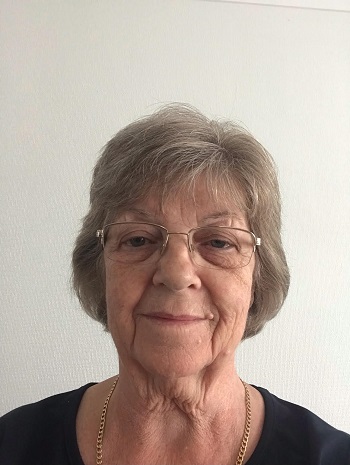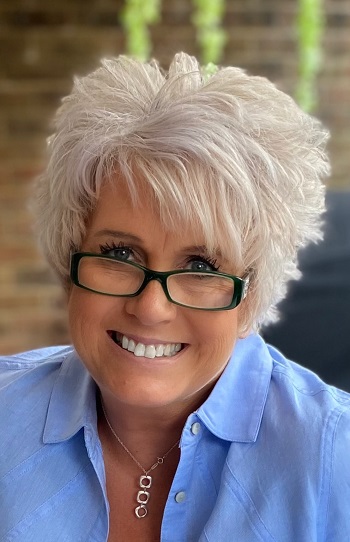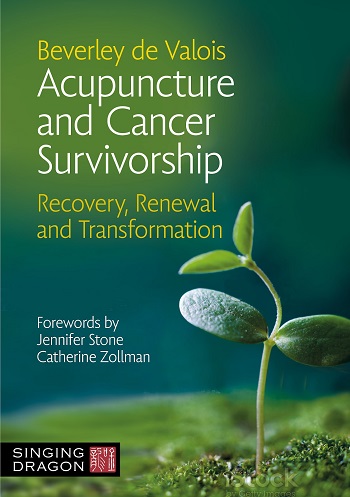Positive Health Online
Your Country

Acupuncture for Cancer Survivors: Recovery, Renewal, and Transformation Post Cancer Treatment
by Beverley de Valois(more info)
listed in cancer, originally published in issue 292 - February 2024
Introduction
Up to 25% of cancer survivors experience long term consequences of cancer and its treatment, which are often not adequately addressed by the healthcare systems.[1] To begin to address this gap in care, I recently opened the first Acupuncture for Cancer Survivors clinics in the UK.
Hosted by the London Acupuncture Clinic in Wimpole Street, London and by Bridge to Health in Uxbridge, Middlesex, these clinics are designed to support recovery from the effects of a cancer diagnosis and treatment – no matter how much time has elapsed since treatment ended. These are the late and long-term consequences of treatment. I bring to these clinics my 25 years of experience as a research acupuncturist in the UK’s National Health Service (NHS) and as a practising acupuncturist in both NHS and private settings.
The challenges of cancer survivorship
More people are surviving longer after a cancer diagnosis. Thanks to early diagnosis and improved treatments, half of people diagnosed with cancer can expect to survive their disease for at least 10 years, often longer.[2] Cancer is now regarded as a chronic, rather than a terminal, disease.
However, the end of cancer treatment does not guarantee a return to good health. Indeed, the aftermath of treatment can often be worse than the disease itself.[3] A quarter of people report long term consequences or aftereffects of cancer and its treatments.
“Consequences” refers to “the range of long-term physical and psychosocial changes that appear to be associated with cancer and its treatment, regardless of how long ago diagnosis and treatment were given.”[4] Examples of physical consequences include chronic pain, hot flushes and night sweats, lymphoedema, fatigue, and sleep disorders. Emotional consequences may include fear of recurrence, anxiety, depression as well as isolation and loss of confidence. Late effects of cancer treatment include potential development of new primary cancers, heart disorders, and other serious conditions. All of these may adversely affect a person’s social and professional life.
How Acupuncture can Help
Many survivors are told nothing can be done to address these consequences, and that they need to live with them. However, an increasing number of research studies show that acupuncture can help. The evidence base is sufficiently robust for prestigious oncology organisations to recommend acupuncture as a treatment option for the consequences of cancer and its treatments. For example, the Society of Integrative Oncology (SIO) and the American Society of Clinical Oncology appraised the evidence to support incorporating integrative medicine approaches into pain management for adult patients with cancer. Their recently released guideline recommends acupuncture as a treatment option for many types of pain experienced during and after cancer treatment, including chemotherapy induced peripheral neuropathy (CIPN), joint and muscle pains associated with aromatase inhibitors (arthralgia), and general and musculoskeletal pain associated with cancer.[5]
Numerous studies report acupuncture to be a safe intervention with few serious adverse events.[6] The majority of reported adverse events are minor, and include transient bleeding, pain, or bruising at the needle site, drowsiness, headache, light-headedness, and local skin irritation. Fainting and pneumothorax are rare.
Acupuncture offers a non-pharmacological treatment option that can be used to manage both physical and emotional conditions, often within the same treatment. This is important, as many cancer survivors do not wish to take further medications. Furthermore, non-pharmacological options for managing pain are especially welcome in the age of the opioid crisis. Many oncologists recommend acupuncture for these reasons:
Drug treatment has more side effects, so you give a drug, and you give a drug to help with a drug, and where do you stop? And what you don’t want to do is to be giving these patients any more drug treatment - they’ve had enough. [To] offer them a treatment that does not involve drugs […] is extremely valuable.
Dr Richard Ashford, Clinical Oncologist, Breast Cancer[7]
Acupuncture sometimes equals the effectiveness of conventional drugs. Results of randomised controlled studies report it is as effective as venlafaxine and gabapentin in the management of breast cancer treatment-related hot flushes [8, 9], with the added advantages of fewer uncomfortable side effects and less rebound effect at the end of treatment. And in some cases, acupuncture offers an approach where pharmacological products do not seem to work:
Acupuncture works. It doesn’t work for everybody, but it can be extremely effective in some patients where our standard medicines don’t seem to be terribly effective.
Dr Rob Glynne-Jones, Consultant Oncologist, Gastrointestinal and Colorectal Cancers [7]
https://www.amazon.co.uk/Acupuncture-Cancer-Survivorship-transformation-practitioners/dp/1913426270
Available to purchase on Amazon
Supporting a “New Normal” after Cancer Treatment
Over nearly 25 years of treating and conducting research into supporting people who have completed cancer treatment (surgery, chemotherapy, and/or radiotherapy), I have observed how acupuncture can help them to recover, to renew their lives, and to adjust to a “new normal”. I address this in my new book Acupuncture and Cancer Survivorship: Recovery, Renewal and Transformation, published earlier this year.[10] Acupuncture can and should be considered part of the multi-disciplinary care of cancer survivors. It has the capacity to address complex presentations commonly seen in this patient group: survivors report from three to thirteen consequences of cancer and its treatments. They also experience more co-morbidities than comparable non-cancer populations.[11]
“Acupuncture has given me my life back” is a phrase I have heard time and time again in clinical practice, and which I expect to hear many more times in my Wimpole Street clinic. Many cancer survivors who have faced complex aftereffects of cancer and its treatments report dramatic improvements in their lives following acupuncture, as can be seen in the following case studies.

Val Fear
The Power of Acupuncture to Transform Lives: Two Case Studies
Chronic complex consequences of breast cancer treatment related lymphoedema
Mother of five, Val Fear, was diagnosed with breast cancer two days before Christmas in 1999. A lumpectomy in January 2000 was followed by chemotherapy and radiotherapy. Val did not cope well with the treatment.
She explains: “It was not a good time for me, I lost all my hair and my self-confidence and emotionally it was very, very hard.”
During chemotherapy, Val developed lymphoedema, a common consequence of breast cancer treatment.
“Emotionally I found that hard because my arm looked so swollen, my fingers were like sausages and people were constantly asking me what was wrong with my hand,” she says.
“Buying clothes was a nightmare because at one point my arm was 40% bigger than the other. I had bad nightmares following the chemo and I wasn’t sleeping. I became frightened to sleep and I wasn’t eating properly, so it really wasn’t a good time in my life, it wasn’t good at all.”
Val’s Lymphoedema Nurse Specialist referred her to a study I was conducting to improve wellbeing for people with cancer treatment related to lymphoedema.[12, 13] Initially concerned about having a therapy involving needles, desperation spurred her to try acupuncture.
“I thought oh no, it’s needles and I hate injections but at that point I was in so much pain and I felt so bad with the lymphoedema I would have tried anything,” Val explains.
“I expected it to hurt but it didn’t, just occasionally when Beverley put the needle in, she’d wiggle it a bit to make sure she had got the right spot and it was a funny tingly sensation, but it relaxed me, and it made me calm and long-term I benefited so much from it.”
Val responded well to the treatment.
“I gained so much from the acupuncture,” she says. “I started to sleep properly, the nightmares stopped, and I regained my self-confidence… Lymphoedema doesn’t rule my life anymore. The arm pain was bad and there were days I just wanted to cut my arm off. Acupuncture lessened the pain. I’m not saying I’m pain free because I do have pain and sometimes it still flares but acupuncture lessened the pain. I’m a keen sewer and it meant I can still sew occasionally. Yes I have to rest and it’s not as good as it was but it’s great, I can do these things now and my grip is better and most of the time the pain is just a niggle as opposed to being the centre of my life.”
Val had 13 acupuncture treatments as part of the study. The treatments served her well and many years later she continues to feel the benefits. “My life is back in balance because of the acupuncture,” she concludes. “The pain in my arm is so much better and it has stayed that way. I am back in control and my emotions are much more controllable. It has been a constant help to me and still is. If I could afford it, I would go regularly because it is just so beneficial. It treats the whole person not just the specific symptoms. It’s wonderful.”
As an acupuncturist, Val’s experience is fascinating. I never attempted to treat her lymphoedema, which was managed by her lymphoedema nurse specialist, and I avoided needling in her lymphoedema affected arm and the associated torso quadrant. My treatment plan for her was individualized and flexible, designed to meet Val’s changing needs over time. Thus, I addressed acute problems as they presented (sciatica, back ache, common cold) as well as her overall wellbeing – including both physical and emotional aspects.
Val’s case demonstrates that acupuncture can address the complex presentations of cancer survivors, even many years after cancer treatment ends. She benefited physically and emotionally, and through treatment developed resilience and an ability to cope with life’s continuing challenges. Her lymphoedema symptoms improved, even though treatment did not focus on this, and needles were avoided in the arm and torso on the affected side. Val’s case shows how acupuncture can be a catalyst to change and transformation for cancer survivors. As she says “If you have the chance, try it. You have got nothing to lose and absolutely everything to gain. It constantly, constantly helped me and it still is.”[7]

Lois Swanger
Changing Needs of a Breast Cancer Survivor Over Time
Lois Swanger was diagnosed with breast cancer in October 2002 at the age of 36. Breast aware, she contacted her doctor immediately on discovering a bruise on her breast that ‘looked like she had been punched.’ Tests revealed that Lois had oestrogen-receptive ductal cell carcinoma. Thankfully, it was caught early and treated with a lumpectomy, radiotherapy, and a course of adjuvant hormonal treatment comprising Tamoxifen (for seven-and-a-half years), followed by Zoladex (for two years).
Lois considers herself a strong person but says the experience still “knocked her for six.” She now views her life in two halves: before cancer and after cancer and does not regret what she has been through, believing it has made her the person she is today. “It made me stop and take stock and changed my view of life. I got a degree after my cancer, which I would never have done in a million years if I had not had that experience,” she explains.
Lois was aware that menopausal symptoms, particularly hot flushes and night sweats, were a consequence of her adjuvant treatment. Being in control of her condition and feeling empowered were very important to Lois, and she did not want to be “popping another pill.” She says: “I was not willing to just sit there and accept the side effects, I was going to do things to help me get through that.”
On attending a cancer support group meeting at Mount Vernon Cancer Centre in Middlesex she found out about acupuncture for hot flushes.[14, 15] Shortly afterwards, she came to see me for treatment. Her hot sweats dramatically reduced, her sleep and her mood improved and, most importantly, she felt fully back in control of her cancer journey. Consequently, she chose to continue to have acupuncture as a means of managing her overall health and she now turns to acupuncture for a range of different conditions.
One such situation was when she was diagnosed with anal fissures, a possible side effect of Zoladex, to which she may have been susceptible because of pre-existing chronic irritable bowel syndrome (IBS). She had been advised to have surgery to deal with the fissure related scarring but wanted to try acupuncture first. Following 12 weeks of acupuncture treatment, she returned to her consultant who was incredulous at the results. He told her that the scars had virtually disappeared and advised her to keep doing whatever she was doing because it was definitely working.
Twenty years on she still comes for acupuncture as a first port of call and uses it in combination with conventional medicine. “I can’t imagine life without it,” she says. “Acupuncture was definitely the right thing for me.”
As an acupuncturist, it has been very interesting working as part of Lois’ healthcare team. Over the years, we have dealt with many crises and issues that have arisen in her life. One of the most remarkable for me was managing her through a period of severe fear of cancer recurrence, which happened when she stopped taking Tamoxifen.
Lois is not a big fan of acupuncture needling, so I always aim to use a minimal number of needles in any treatment. I also use a lot of moxibustion (a form of heat treatment used in Chinese medicine). As she is at risk of lymphoedema, I always avoid needling in her right arm.
Lois’s case illustrates how the issues that arise after cancer treatment change over time. Acupuncture managed the hot flushes and night sweats that started during her cancer treatment; some years later, acupuncture managed the anal fissures that were a late effect of Zoladex and saved her from having surgery; and even later, acupuncture helped her cope with the extreme anxiety and fear of cancer recurrence that arose when she stopped taking Tamoxifen.
For More Information
Many countries recognise the issues of cancer survivorship post-cancer treatment and have implemented survivorship programmes that aim to address the complex aftereffects of treatment. Check with national cancer organizations for details about the cancer survivorship programmes.
A detailed discussion of the issues of cancer survivorship and how acupuncture can help is presented in my book Acupuncture and Cancer Survivorship: Recovery, Renewal, and Transformation, the first peer-reviewed, evidence-based book to be published on this subject.
Find out more about the Acupuncture for Cancer Survivors clinics at the London Acupuncture Clinic https://www.londonacupuncture.co.uk/acupuncture-for-cancer-survivors and at Bridge to Health https://www.bridgetohealth.co.uk/blog/acupuncture-and-cancer
References
- Macmillan Cancer Support, Cured - but at what cost: long-term consequences of cancer and its treatment. 2013, Available at www.macmillan.org.uk/.../Consequences_of_Treatment_June2013.pdf [Accessed 11 December 2014].
- Macmillan Cancer Support, Statistics fact sheet. 2021, Available at https://www.macmillan.org.uk/_images/cancer-statistics-factsheet_tcm9-260514.pdf [Accessed June 22].
- Doyle N, Cancer survivorship: evolutionary concept analysis. Journal of Advanced Nursing, 2008. 62(4): p. 499-509.
- Macmillan Cancer Support, Throwing light on the consequences of cancer and its treatment. 2013, Available at http://www.macmillan.org.uk/Documents/AboutUs/Research/Researchandevaluationreports/Throwinglightontheconsequencesofcanceranditstreatment.pdf [Accessed November 2013].
- Mao JJ, Nofisat I, Ting B, et al., Integrative Medicine for Pain Management in Oncology: Society for Integrative Oncology–ASCO Guideline. Journal of Clinical Oncology, 2022. 40(34 %R 10.1200/JCO.22.01357): p. 3998-4024.
- Koppelman M, Acupuncture: An overview of scientific evidence. no date, Available at https://www.evidencebasedacupuncture.org/acupuncture-scientific-evidence/ [Accessed June 26].
- British Acupuncture Council, To the Point Trailer. 2019, Available at https://youtu.be/15sFjy6gtfM?si=lwd1ogjeN9poT6y7 [Accessed November 9, 2023].
- Walker EM, Rodriguez AI, Kohn B, et al., Acupuncture versus venlafaxine for the management of vasomotor symptoms in patients with hormone receptor-positive breast cancer: a randomized controlled trial. J Clin Oncol, 2010. 28(4): p. 634-40.
- Mao JJ, Bowman MA, Xie SX, et al., Electroacupuncture versus gabapentin for hot flashes among breast cancer survivors: a randomized placebo-controlled trial. J Clin Oncol, 2015. 33(31): p. 3615-20.
- de Valois B, Acupuncture and Cancer Survivorship: Recovery, Renewal, and Transformation. 2023, London: Singing Dragon.
- Macmillan Cancer Support, The burden of cancer and other long-term health conditions. 2015, Available at http://www.macmillan.org.uk/documents/press/cancerandotherlong-termconditions.pdf [Accessed 21 August 2017].
- de Valois B, Young T, and Melsome E, Assessing the feasibility of using acupuncture and moxibustion to improve quality of life for cancer survivors with upper body lymphoedema. European Journal of Oncology Nursing, 2012. 16(3): p. 301-309.
- de Valois B, Asprey A, and Young T, "The monkey on your shoulder": a qualitative study of lymphoedema patients' attitudes to and experiences of acupuncture and moxibustion. Evidence-Based Complementary and Alternative Medicine, 2016. Article ID 4298420.
- de Valois B, Young T, Robinson N, et al., Using traditional acupuncture for breast cancer-related hot flashes and night sweats. Journal of Alternative & Complementary Medicine, 2010. 16(10): p. 1047-57.
- de Valois B, Young T, Thorpe P, et al., Acupuncture in the real world: evaluating a 15-year NADA auricular acupuncture service for breast cancer survivors experiencing hot flushes and night sweats as a consequence of adjuvant hormonal therapies. Support Care Cancer, 2022. 30(6): p. 5063-5074.
Comments:
-
No Article Comments available
